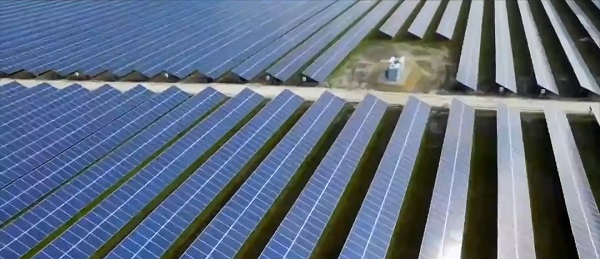Business
MP pay increasing between $7,900 and $15,800 in 2025

The Canadian Taxpayers Federation estimates members of Parliament will take a 3.9 per cent pay raise on April 1.
“Instead of padding their pockets again this year, it’s time for MPs to stand up for taxpayers and demand an end to these pay raises,” said Franco Terrazzano, CTF Federal Director. “Canadians can’t afford one more dollar going to highly paid politicians and MPs don’t deserve another raise.”
A backbench MP’s salary is currently $203,100. A minister collects $299,900, while the prime minister takes home a $406,200 annual salary.
MPs give themselves pay raises each year on April 1, based on the average annual increase in union contracts with corporations that have 500 or more employees.
While final pay numbers have not been released, contract data published by the government of Canada shows the average annual increase in corporate union contracts totaled about 3.9 per cent in 2024. Using this data, the CTF estimates this year’s pay raise will amount to an extra $7,900 for backbench MPs, $11,600 for ministers and $15,800 for the prime minister.
After this year’s pay raise, backbench MPs will receive a $211,000 annual salary, according to CTF estimates. A minister will collect $311,500 and the prime minister will take home $422,000.
Leger polling released by the CTF shows 80 per cent of Canadians opposed the MP pay raise in 2024, 80 per cent opposed it in 2023 and 79 per cent opposed it in 2022.
The federal government stopped automatic MP pay raises from 2010 to 2013 in response to the 2008-09 recession.
“Canadians need MPs who will be champions for taxpayers and demand an end to these pay raises, because when politicians pad their pockets, bureaucrats demand more money too,” Terrazzano said. “It’s not rocket science: MPs should do the right thing and stop their upcoming pay raise.”
| Position | Pre-Covid Salary | Current Salary | Salary Apr. 1 | Total increase since beginning of 2020 |
| Senator |
$153,900 |
$178,100 |
$186,000 |
$32,100 |
| MP |
$178,900 |
$203,100 |
$211,000 |
$32,100 |
| Minister |
$264,400 |
$299,900 |
$311,500 |
$47,100 |
| Prime Minister |
$357,800 |
$406,200 |
$422,000 |
$64,200 |
Business
Rogue Devices Capable Of Triggering Blackouts Reportedly Found In Chinese Solar Panels


From the Daily Caller News Foundation
By Audrey Streb
“That effectively means there is a built-in way to physically destroy the grid”
Officials are reportedly reassessing the risk posed by Chinese-made devices found in solar panels that are capable of damaging the energy infrastructure, destabilizing the power grid and triggering widespread blackouts.
Over the past nine months, “rogue communication devices” not listed in product documents were found in solar power inverters and batteries from several Chinese suppliers, according to sources familiar with the matter who spoke with Reuters. The undocumented devices were found after U.S. experts disassembled the renewable energy equipment to check for security issues, prompting officials to review the potential dangers of the Chinese-made devices, according to the publication.
“We know that China believes there is value in placing at least some elements of our core infrastructure at risk of destruction or disruption,” Mike Rogers, a former director of the U.S. National Security Agency, told Reuters. “I think that the Chinese are, in part, hoping that the widespread use of inverters limits the options that the West has to deal with the security issue.”
Dear Readers:
As a nonprofit, we are dependent on the generosity of our readers.
Please consider making a small donation of any amount here.
Thank you!
The communication devices were reportedly found in power inverters, which are used to connect solar panels and wind turbines to the power grid and are often produced in China. They are also found in electric vehicle chargers, batteries and heat pumps. Undocumented cellular radios were also found in Chinese-manufactured batteries, according to the publication.
If the rogue communication devices found in the inverters are used to circumnavigate firewalls and change the settings or turn off inverters remotely, this could destabilize power grids, damage energy technology and prompt blackouts, according to experts who spoke with Reuters.
“That effectively means there is a built-in way to physically destroy the grid,” one of the sources told the publication.
For years, energy and security experts have cautioned that reliance on Chinese products for green energy could expose the U.S. to espionage and security risks.
A spokesperson for the Department of Energy (DOE) told Reuters that it continually evaluates risks involving new technology and that “while this functionality may not have malicious intent, it is critical for those procuring to have a full understanding of the capabilities of the products received.”
“We oppose the generalisation [sic] of the concept of national security, distorting and smearing China’s infrastructure achievements,” a spokesperson for the Chinese embassy in Washington told Reuters.
Republican officials sent a letter advising an American energy company to stop using Chinese-manufactured batteries due to the security risks in December 2023, according to a February 2024 statement.
“We approached Duke Energy regarding its use of Chinese-manufactured CATL batteries and network-equipped systems, which posed an unacceptable surveillance risk at Camp Lejeune, North Carolina — the largest Marine Base in the United States. Directly following our inquiry, Duke disconnected the Chinese-manufactured systems from the grid,” former Republican Wisconsin Rep. Mike Gallagher and Secretary of State Marco Rubio, a U.S. senator for the state of Florida at the time, wrote in the press release. “Others that continue to work with CATL, and other companies under the control of the CCP, should take note,” they continued.
Business
Taxpayers deserve a federal budget

The Canadian Taxpayers Federation is calling on the federal government to table a 2025 budget.
“Failing to even present a budget is a huge crack in Prime Minister Mark Carney’s credibility,” said Franco Terrazzano, CTF Federal Director. “You can’t be credible with the finances if you can’t even bother to put together a budget.”
The Canadian Press reported that the federal government “will not table a budget when Parliament returns in the coming weeks but will instead put forward a fall economic statement.”
Carney plans to add an extra $225 billion to the debt over the next four years, according to his election platform. For comparison, the Trudeau government planned on increasing the debt by $131 billion over those years, according to the most recent Fall Economic Statement.
Interest charges on the debt will cost taxpayers $54 billion this year. That’s about the same amount of money as the federal government sends to the provinces through the Canada Health Transfer.
“Canadians have real concerns about the state of our national finances and the Carney government is answering with a shrug,” Terrazzano said. “Taxpayers deserve to know the state of government finances and scrutinize government spending, so Carney owes Canadians a budget.”
-

 espionage2 days ago
espionage2 days agoOttawa Raises Alarm With Beijing Over Hong Kong Detention of CPC Candidate Joe Tay’s Family
-

 Health2 days ago
Health2 days agoRFK Jr. Says Trump Just Did What No Democrat Ever Had the Guts to Do
-

 Crime2 days ago
Crime2 days agoU.S. Charges Sinaloa Cartel Leaders With Narco-Terrorism After Record Fentanyl Seizure
-

 Agriculture2 days ago
Agriculture2 days agoCanada Greenlights Mass Culling of 400 Research Ostriches Despite Full Recovery from Bird Flu Months Ago
-

 2025 Federal Election21 hours ago
2025 Federal Election21 hours agoJudicial recounts could hand Mark Carney’s Liberals a near-majority government
-

 Addictions1 day ago
Addictions1 day agoWhy the U.S. Shouldn’t Copy Canada’s Experiment with Free Drugs
-

 conflict1 day ago
conflict1 day agoInspired by Ukraine, Armed by the U.S., Reinvented by Tech: Taiwan’s New Way of War
-

 Alberta21 hours ago
Alberta21 hours agoAlberta group releases referendum question on leaving Canada, becoming ‘sovereign country’
 By
By 






